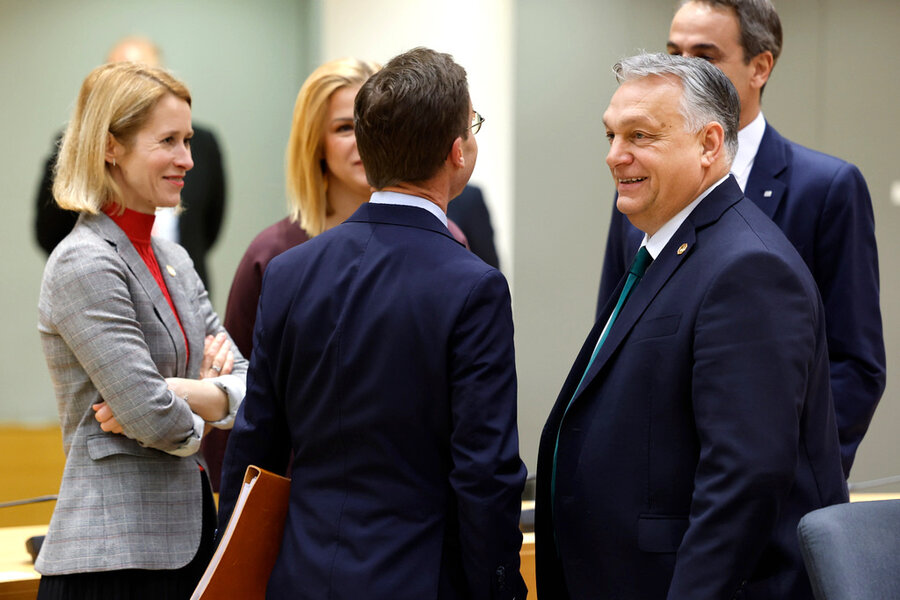Saving Ukraine in Hotel Amigo
One of the most world-shaping negotiations took place this week in Hotel Amigo, a popular place in Brussels for European officials to stay. In one-to-one meetings and a group session, the continent’s top leaders overcame frosty relations with Hungarian Prime Minister Viktor Orbán and convinced him to drop his opposition to $54 billion in financial support for Ukraine.
The deal announced Feb. 1 by the 27-member European Union not only will uplift Ukraine’s defenses against Russia but also might spur the U.S. Congress to end its political disputes over further funding for Kyiv. It also sends a message to Russian President Vladimir Putin that democratic discourse, when done in good faith among those with equal rights around the table, remains a model for the world. It can’t be suppressed by invading other countries or squelching dissent.
The Hungarian leader, who is close to Mr. Putin, certainly felt pressure from other EU leaders to support more aid for Ukraine. And the negotiations did require some balancing of national interests, such as the release of some EU funds for Hungary after reforms to its judiciary.
But as Irish Prime Minister Leo Varadkar said of the talks, “We have a system of unanimity for making big decisions here in Brussels, but it’s on the basis that everyone acts in good faith and is willing to make compromises” on issues that are for “the greater good.”
Ukraine has also held direct talks with Hungary in recent days on a number of bilateral issues. The tone was one of empathy and openness, the elements of trust.
“We spoke frankly about our fears about each other’s intentions. We explained everything to each other,” said Ukrainian Foreign Minister Dmytro Kuleba. “The Hungarians distrust us, we distrust them – due to different circumstances, that’s understandable. And the fact that we discussed all this today ... I believe that this is very important.”
A key principle of international relations, laid down in the Vienna Convention on the Law of Treaties, is that countries negotiate in good faith, not out of revenge or to humiliate, but to create a space for finding shared interests, even perhaps shared values.
Sincere deliberation can be more than winning arguments or angling for more power. The mere act of listening to others requires a posture of equality, the essence of democracy. And that is what Ukraine is fighting for. And something that Hungary is supporting, too.





